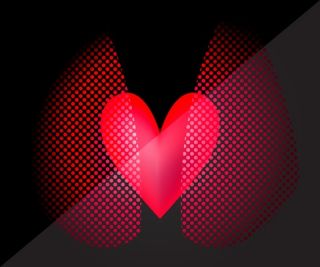Psychopharmacology
Anorexia, Yoga and Asthma (Part II)
My first year in recovery from anorexia continues to encounter challenges.
Posted March 15, 2015

Last week I wrote a post titled “Anorexia, Yoga and Asthma” about some of the efforts I have made to strengthen my mind and body in my first full year of recovery from anorexia and some of the obstacles I have encountered. Well, one obstacle in particular that has recently made its way into my life. This post is a continuation from last week because there have been several new developments that I would like to share with you as I continue to forge my recovery.
When I went to the hospital last week, they started me on an oral steroid and the physician at the urgent care clinic had given me a prescription to continue that medication for twelve days, decreasing the dose every three days. Within a couple of days of starting it, I noticed I was having rather rapid mood swings (never having experienced this before). I went from being up and happy and even kind of silly at times, to tired and down twenty minutes later. This was happening at work, during my commute and at home. I had trouble falling asleep, I was waking in the middle of the night and cleaning my apartment. Within a day, the mood swings were becoming more expansive and I was beginning to experience racing thoughts. I knew this was not good and I contacted my psychiatrist. I had read on line that this side-effect was possible with this medication. My psychiatrist told me to contact my primary care physician and try to taper off more quickly because you can’t just stop this medication cold turkey. So that is what I did and as soon as I started to taper down, I felt much better. And much relieved.
I was frightened, probably more than I should have been because I was catastrophizing. Within the space of the several days I was experiencing the psychiatric symptoms as a side effect, I visualized my hard-won stability of this past year being thrown away as quickly as falling out a ten-story window and shattering in tiny pieces. My psychiatrist pointed out my tendency to repeat this behavior (of making some issues a bigger deal than they need to be) and emphasized that I did this again when I knew that these symptoms were a side-effect of the medication and were temporary. I acknowledged that I did perhaps over react a tad, and that I did have a tendency to be my own worst enemy.
Saturday morning, I decided to return to the yoga class I had enjoyed so much. I was still on the oral steroid (albeit a lower dose) and my primary care physician had prescribed Singulair for me, another medication to help with my breathing. I thought I would be okay. My psychiatrist had suggested that I attend half of the class and leave in the middle. Fair suggestion but I found that when that time came, I felt too self-conscious to just pick up my mat and walk out. Plus I was enjoying the class immensely and I didn’t really want to leave.
At the beginning of the class the instructor read an introduction on “Pranayama,” which is Sanskrit for the breathing practice of yoga. I have quoted part of what she read below:
“Pranayama is a Sanskrit word which literally translates into “extension of the prana or breath”. ‘Prana’ means life-force and it is the life-force or vital energy that pervades the body. Prana is the link between mind and consciousness. The physical manifestation of “prana’ is breath and ”ayama” means to extent or draw out the breath.
When the Breath wanders, the mind is unsteady, but when the Breath is still, so is the mind still.” – Hatha Yoga Pradipika
Breathing is vital for our survival as it is the only way we can send oxygen inside our body and into our organs. We can live for months without consuming food and days without water, however we can only survive a few minutes without breathing. When you learn the breathing techniques it will positively affect your actions and thoughts. Every thought we have changes the rhythm of our breath. When we are happy breathing is rhythmic and when we are stressed breathing is irregular and interrupted. Mastering the art of breathing is a crucial step towards self-healing and survival.”
Source: http://conscioushealth.net/pranayam-breathing-exercise-conscious-health…
I became excited as M. the instructor read these words. I thought, “Yes, today is all about the breath. I know this is the day I was meant to be here because I’m going to learn all about how to breathe and this is what I’ve been struggling with. This is perfect, this was meant to be.”
I learned how to inhale and exhale and how to retain my breath at each end and how to make my breathing square, meaning making each inhalation and retention and exhalation and retention last for the same amount of time. Only I couldn’t do it. I didn’t know if everyone else could do it but I was having trouble. I cursed silently to myself. This isn’t how it’s supposed to be.
I did the best I could with my breathing and concentrated on achieving the different poses, flowing smoothly from pose to pose. My limbs were shaking and M. noticed. “That means your muscles are working,” she told me. I was able to do a half-supported shoulder stand (a pose I didn’t try last week), but there were still several poses that eluded me.
I felt good at the end of the class. My body felt strong; I felt alive and empowered. I had broken a sweat, a sure sign that I had worked hard. A success. As I got into my car, in the pouring rain, I felt my chest begin to tighten and I began to cough. I reached for my inhaler. “Oh shit, not again.”
I used my inhaler twice more throughout the course of the day as I ran errands. Lots of errands. In a downpour. Dashing through the raindrops. I was getting tired, but I needed cat food. I needed coffee and yogurt.
The inhaler would help initially, but then everything came back. Worse than before. The coughing, the shortness of breath, the tightness in my chest. So I didn’t know what to do. I didn’t want to go to the doctor’s office. I had enough of doctors last weekend. I talked to my friend L. on the phone. He said I sounded “jittery.” “Don’t use the albuterol inhaler any more. You’re overusing it.”
“I know. But I don’t want to go to the doctor.”
“Look, if you need to go, go.”
I waited until the last possible moment and went to an urgent care clinic. If I waited until after they closed, I would have had to go to the emergency room and I definitely didn’t want that. The doctor listened to my lungs and took a chest x-ray. “You have pneumonia,” she announced to me when she came back in the room. “I’m going to send over a prescription for antibiotics to your pharmacy.”
I was shocked. I hadn’t expected this. No wonder the inhaler hadn’t worked. I had questions that I didn’t ask. I just wanted to pick up the script and go home. How long until I would feel better? How would the pneumonia affect the asthma? Did I get pneumonia because I have asthma? All these and more kept running through my mind.
I felt angry and cheated. I didn’t know when I would be able to go back to yoga class. And I didn’t know when I would be able to start swimming again. The pulmonologist had told me when the cough goes away. It never really had gone away. I was doing everything I was supposed to be doing. Why wasn’t it working? Why wasn’t my body strong like I wanted it to be? Like it was supposed to be?
I didn’t expect any answers. I knew none were going to fall from the sky. Just as I needed to be patient with my recovery from my mental illness, I needed to realize that I had to apply that same principle to my physical recovery. I abused my body for many years, not just with the anorexia, but with marijuana, cocaine and Klonopin, and now it was sending me a message. “I need time and care and attention.”
It’s a hard lesson to swallow. The key is willingness and I have no choice. Just as my mind told me what it needed, now my body is telling me what it needs and I must heed its love letter.
“Listen to me,” my body is pleading. “I need tender loving care.” There’s a first time for everything.
© Svetlana Bobrova | Dreamstime.com




